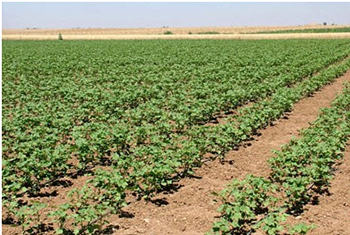DAMASCUS, (ST) – Federation of the Syrian Chambers of Agriculture called to map out and develop appropriate policies and legislations for the agricultural sector to attract local, Arab and foreign investments to benefit from rewarding cash revenues that can be achieved in this sector.
Technical Adviser at the Federation of Chambers of Agriculture, Eng. Abdul Rahman Qrunfleh, pointed out that the role of the economic government management is reflected in its work and influence on the decisions of investors and directing them to the agricultural sector because it creates the conditions for self-development.
Eng. Qrunfleh called the government to help smallholders to overcome the obstacles they face in expanding their productive assets by providing economic incentives and creating an atmosphere of widespread agricultural investment, particularly that large-scale investments in agriculture and food production.
“The broad investment in the agricultural sector contributes to increase production and gains earned by exporters and generate employment opportunities as well as it encourages technology transfer. This mechanism encourages the owners of capitals to be of great interest in government investment in the agricultural sector as a critical factor in providing a suitable environment for private investment in this domain,” he pointed out.
“Developing the agricultural sector and food production has a significant impact on creating job opportunities, reducing poverty, promoting the national economy and converting it to an economy to be a generator of growth. So it is necessary to support the trend towards giving priority to investments in the agricultural sector and improve their effectiveness because investment is one of the most effective strategies to combat unemployment, ensure food in the markets, and maintain low prices for consumers and this makes food accessible to everyone,” Eng. Qrunfleh clarified.
He explained that the Syrian economy is largely dependent on the agricultural sector and some 724,012 persons work in it. Some 14.32 percent of the total labor force in the country and a large proportion of the Syrian workforce are working in the agricultural manufacturing sector such as food industries and textile that based on cereals and oils, sugar, dairy, cotton, wool and leather, and this plays a crucial role in the incentive price to farmers.
Sh. Kh

